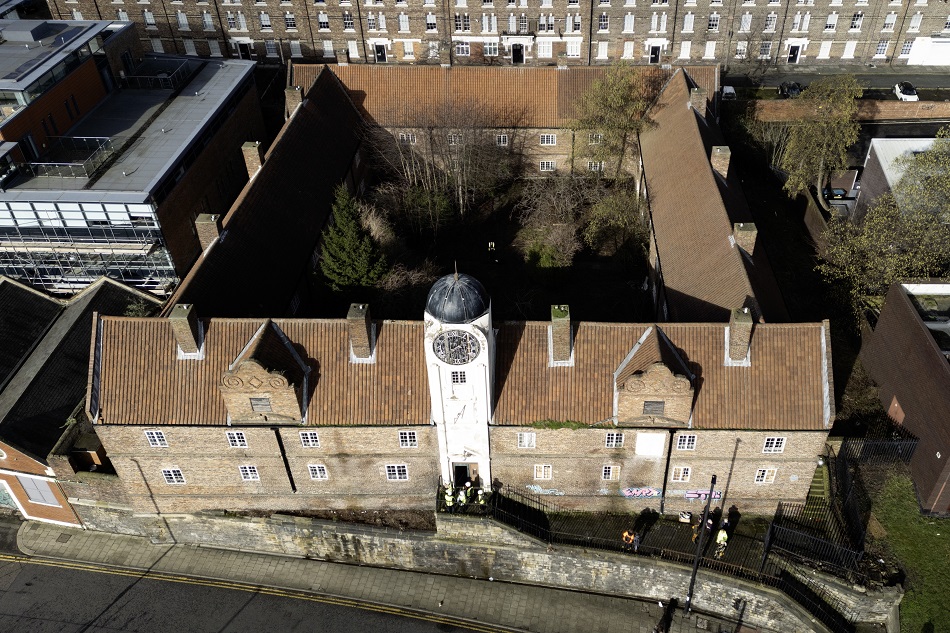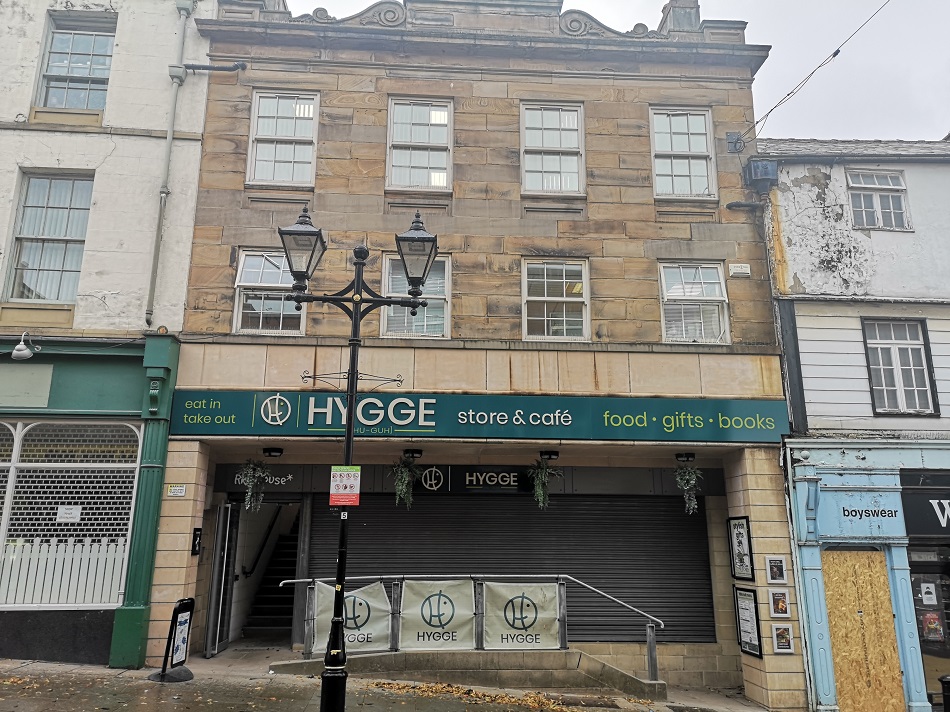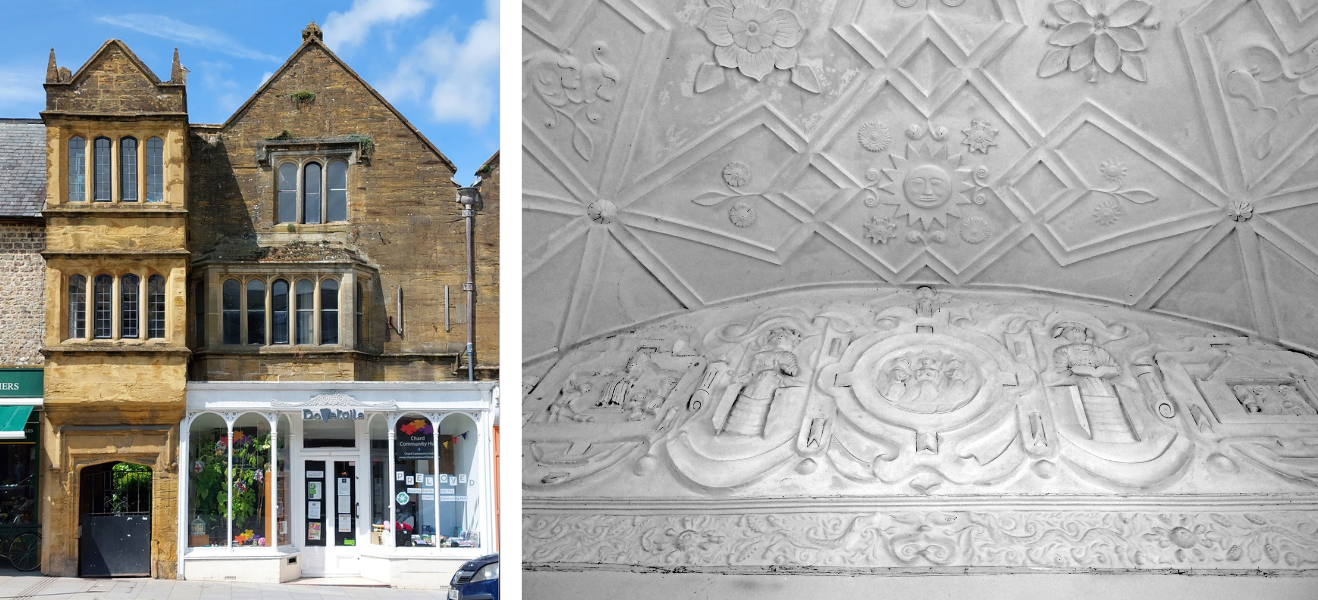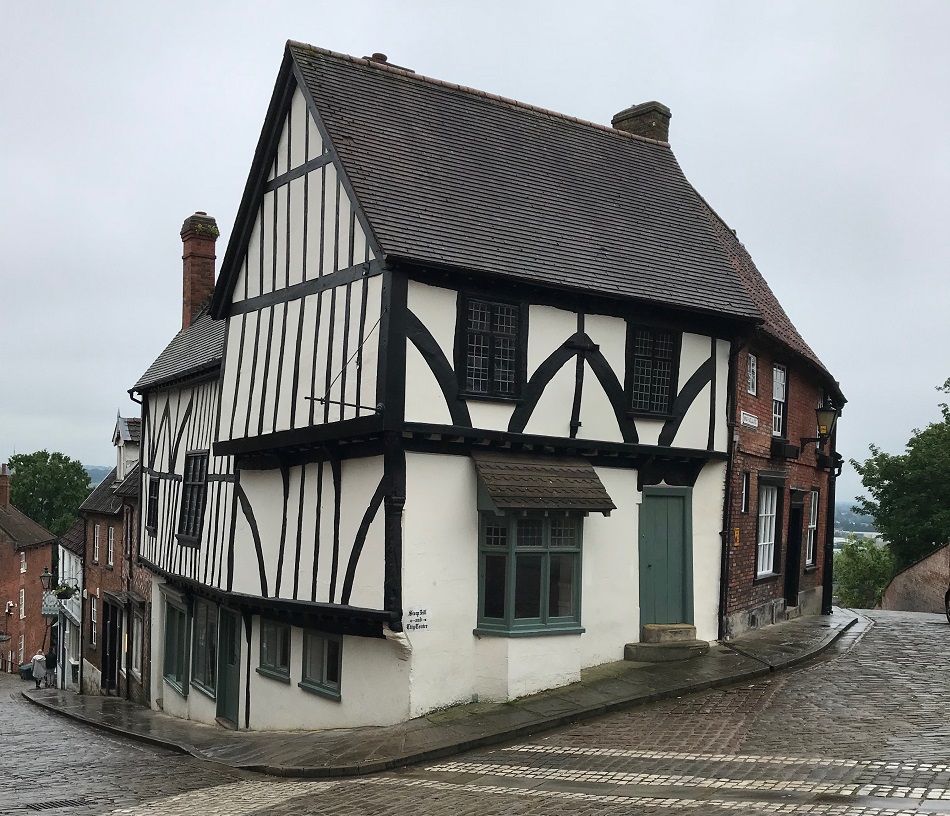

The Architectural Heritage Fund (AHF) is excited to announce a new batch of Project Development Grants to community-focused projects that will contribute to the transformation of high streets and town centres in England. This is part of a one-off extension of the Transforming Places through Heritage (TPtH) programme, made possible by support from Historic England. The grants were awarded at the March Grants Panel, where 20 awards overall were made to projects across the UK, totalling £735,041.
Transforming Places through Heritage was made possible with funding from the Department for Culture, Media and Sport. The 3.5-year, £15 million programme, supported projects led by charities and social enterprises with the potential to contribute to the regeneration of high streets and town centres in England.
The programme made 338 funding awards, totalling £13,868,006, to 239 projects – these include schemes to turn former bank buildings into affordable housing and workspaces, libraries into modern community centres and department stores into arts and cultural spaces.
Matthew Mckeague, CEO of The Architectural Heritage Fund, commented: “Transforming Places through Heritage allowed us to support a strong pipeline of social enterprise and charity-led schemes to regenerate historic buildings and revitalise high streets and towns. There is still huge demand for this type of funding from organisations and we are hugely grateful to Historic England’s additional investment to allow us to invest in a number of projects that will revitalise a number of very significant historic buildings with new, community-focused uses.”
Duncan Wilson, Chief Executive of Historic England, said: “We are delighted to be able to continue our support for The Architectural Heritage Fund’s work in reviving our high streets with the help of local communities. We have proven through our four-year High Street Heritage Action Zones programme that heritage-led regeneration can unlock a positive future for high streets. We also know how important local people are in bringing life to our shared high streets and AHF’s work will continue to put people at the heart of regenerating and reimagining a new future for these special places.”
You can read more about four of the projects awarded TPtH funding below.

Image: An aerial shot of Keelmen's Hospital, Newcastle. Credit - Steve Brock of Newcastle City Council.
Keelmen’s Hospital, Newcastle (Tyne & Wear Building Preservation Trust)
The Grade II*-listed Keelmen’s Hospital was constructed in 1701. For 180 years, it operated as an almshouse for retired or sick keelmen (who transported coal up the Tyne) and their widows. Following this, it was used as council housing for 90 years and student accommodation for 30 years. The building was vacated in 2009 and has since remained empty. Tyne & Wear Building Preservation Trust was commissioned by Newcastle City Council to review Heritage at Risk in the city. Through this review, the restoration and reuse of the Keelmen’s Hospital was identified as a prime candidate for a partnership project. The current proposal is to convert the hospital into 20 one- or two-person flats, with the potential for specialist end uses, including co-housing, specialist care support and sheltered housing. The AHF grant will cover the cost of design team fees to support the Trust in preparing to apply for further funding, building control and planning permission.

Image: Rise House, Rotherham. Photo courtesy of Rotherham Rise.
Rise House, Rotherham (Rotherham Rise)
Located prominently in Rotherham town centre, 18 High Street and the Grade II-listed 15 Vicarage Lane were constructed in the early to mid-19th century. For some time, the building was the base for Speeds Department Store, then later Phoenix Enterprises which provided support for people looking to get back into employment. With the help of social investment loans, the building was purchased by Rotherham Rise in 2019, a registered charity established in 1976, which provides help and support for survivors of domestic abuse and sexual exploitation. Rotherham Rise has been taking a phased approach to restoring and renovating the building to create a space to deliver its charitable work. The overall vision for the project is to create an accessible community space that offers a range of activities and support, while reducing the stigma that can be associated with accessing domestic abuse support services. The AHF grant will support project management, fundraising planning, community engagement and the development of design proposals.

Images: The exterior of the Courtroom and No.9 Fore Street, Chard (left) and vaulted plasterwork in the Courtroom (right). Credits to Patrick Stow and Bob Winn.
The Courtroom and No.9 Fore Street, Chard (Somerset Building Preservation Trust)
Sitting prominently on Chard High Street, No. 9 Fore Street originated as a 16th-century town house. It was extended around 1632 to include the Courtroom block, which functioned as an early Manor Court for the area. While the town house has evolved over the centuries, the courtroom has remained mostly untouched, with much of its original fabric still intact. This beautiful building is not, however, ideally arranged for modern use, and the ground floor pop-up rental shop is the only space currently occupied. An AHF-funded Viability Appraisal has identified three varied and flexible potential future uses for the building, which will attract a diverse range of users and build a steady income, helping to ensure its long-term future. The proposed uses include creative studios on the ground floor, with a heritage specialist holiday let in the rear section of the building and the courtroom. The shop will also be restored, with improved facilities added to ensure future occupancy. This new AHF grant will support professional fees and consultant costs to help progress project plans to the next stage.

Image: The Harlequin, Lincoln.
The Harlequin, Lincoln (Heritage Lincolnshire)
Dating back to the 15th century, this Grade II*-listed timber-framed building was originally built as a merchant’s house but has been known as the Harlequin Inn since 1744, so called as it was frequented by a troupe from a nearby theatre. From 1930 onwards, it operated as an antique bookshop. Although a prominent building on the historic Steep Hill into the heart of medieval Lincoln, The Harlequin is currently closed, inaccessible and in urgent need of repair to bring it back to life. Heritage Lincolnshire’s vision is to restore and re-open The Harlequin as a multi-functional space, with a coffee shop on the ground floor and office space for Heritage Lincolnshire on the upper floors. There will also be an area for arts and heritage professionals to rent desk space and to collaborate with Heritage Lincolnshire, forging a heritage hub out of this unique historic structure. The AHF grant will enable Heritage Lincolnshire to work with a team of professionals to carry out a structural survey, develop designs, and to produce a fundraising strategy and business and marketing plans.
In addition to these four awards, nine more grants have been awarded to projects across England:
Market House, Penzance (The Penzance Regeneration Company Limited)
Newhampton Arts Centre (Newhampton Arts Centre)
Oxford Arms, Kington (Open Arms Kington)
Parade Chambers, Penryn (MusicAbility Foundation)
Penryn Arts Centre (GW Arts CIC)
Redruth Library (Redruth Former Library CIC)
Stretford Public Hall (Friends of Stretford Public Hall)
The Arcade, Dewsbury (The Arcade – Dewsbury)
The Old Wine Warehouse, Ramsgate (Heritage Lab Ramsgate CIC
